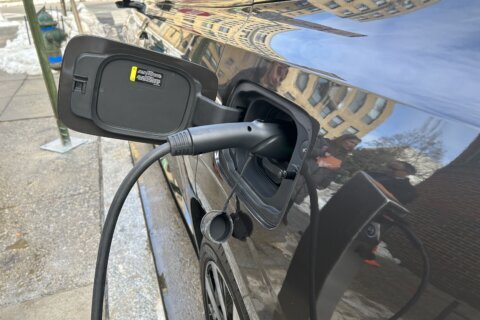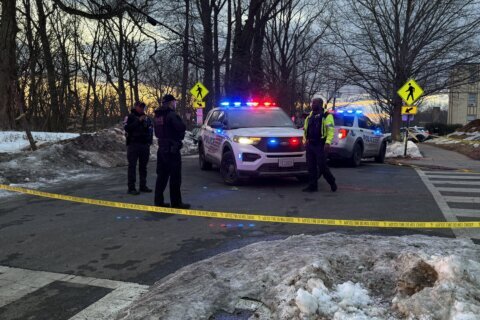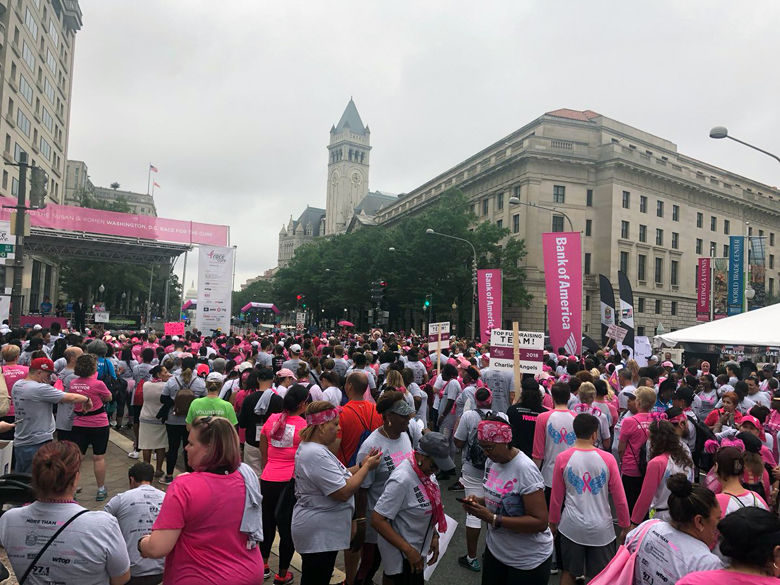
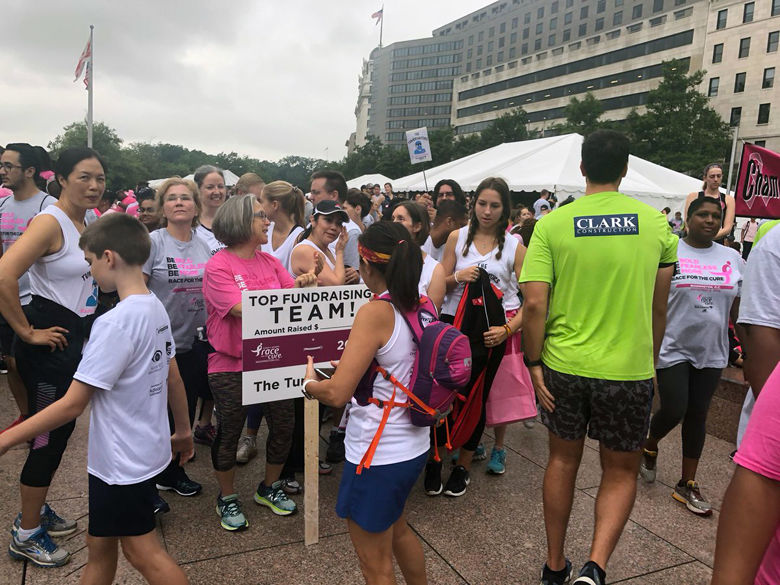
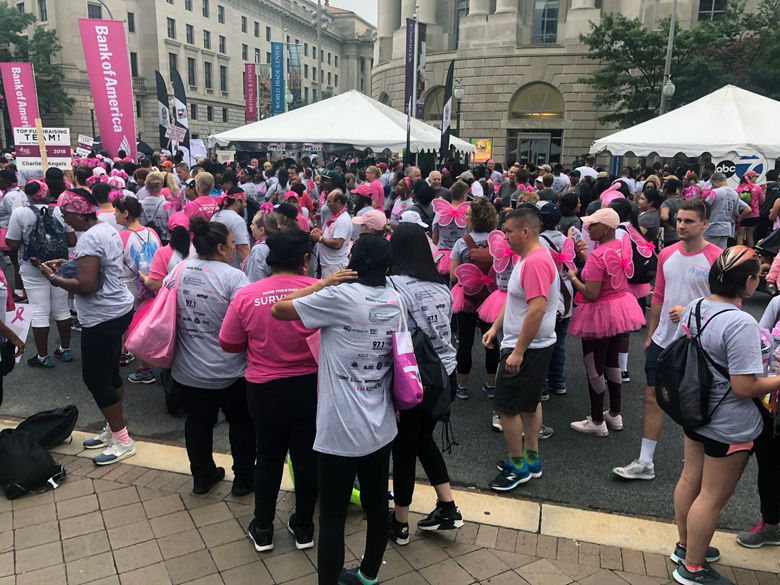
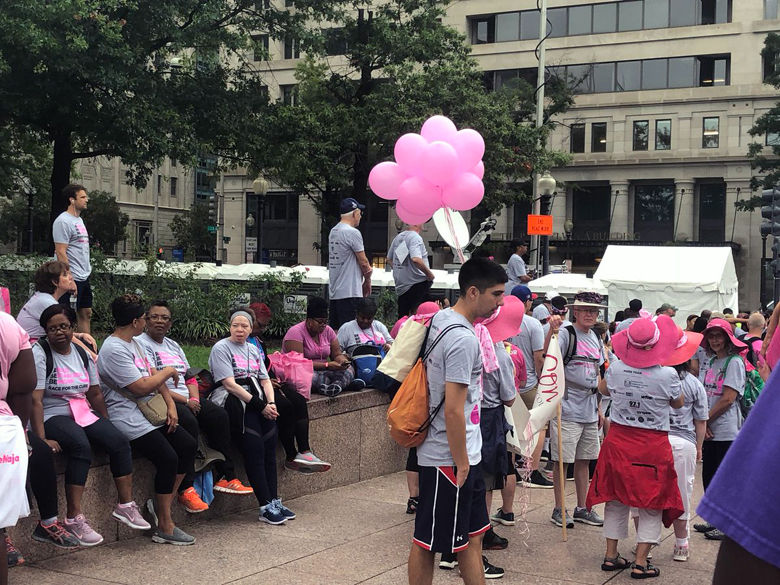
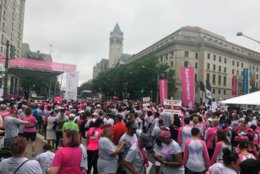
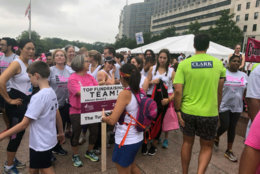
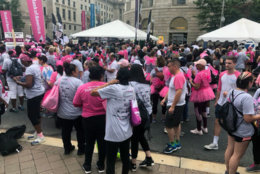
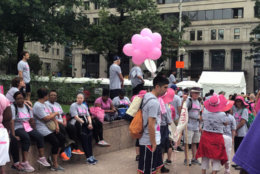
Editor’s note: This story has been corrected to say that Sabrina Ivory’s mother is a survivor of breast cancer.
WASHINGTON — Saturday’s Susan G. Komen Race for the Cure featured pink-clad participants and brought people from across the nation together on Freedom Plaza to raise close to $600,000 for breast cancer research.
And they’re off! @SusanGKomen @WTOP #RacefortheCure pic.twitter.com/F0flKYSLJc
— Melissa Howell (@Mhowell003) September 8, 2018
Regina Mathis has been a volunteer with the Susan G. Komen organization since the 1980s. She is a 13-year survivor but began her service to the organization well before being diagnosed.
Saturday’s Race for the Cure is one she said represents strength in numbers.
“I think I cried the whole race, backward and forward,” said Mathis.
Sabrina Ivory and her family participated in the Race for the Cure in Miami every year, where her sister, who recently lost her battle to breast cancer, lived. Since her youngest sister passed away, Ivory now participates in the race here in the district near her home, a tribute to her sister and her mother, who is a survivor.
“There’s still so much to be done, we’re losing too many young people,” Ivory said.
She said her mission is to encourage everyone to contribute time or money to keep cancer research going as the search for a cure continues.
Judy Macon and her best friend, Toni Stifano, also came out Saturday. They haven’t missed a race since the event began.
Macon said she was diagnosed in 1983, when she was 31-years-old. Stifano, who was diagnosed just six months after getting married, said she and Macon intend to continue supporting what they consider to be an uplifting event.
Research is important, of course, but Mathis said early detection is key.
“There’s still so much to be done, we’re losing too many young people,” she said. “Don’t wait ’til you’re 40. You have to be an advocate for yourself.”


